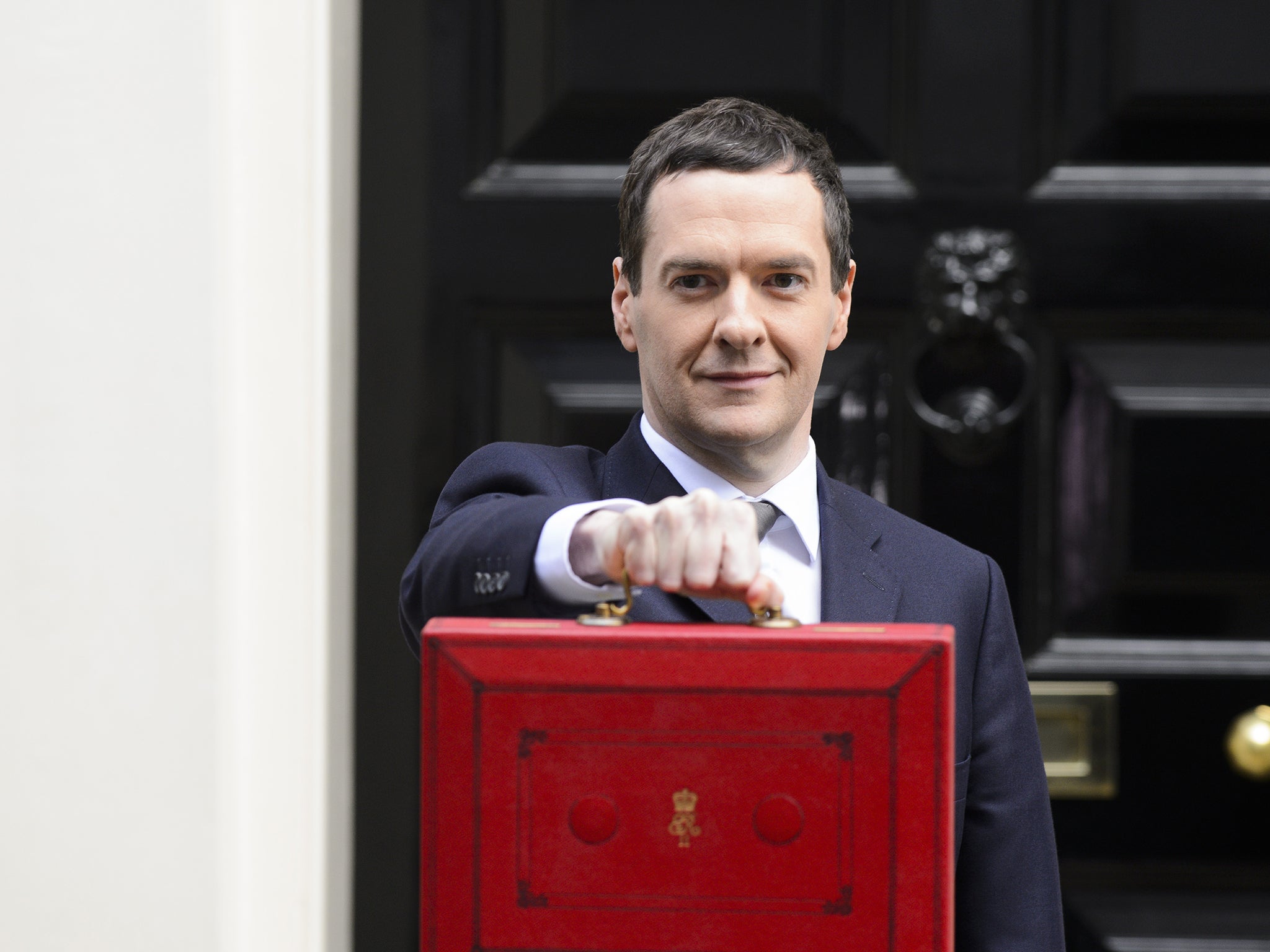Budget 2015: The first Conservative Budget for 19 years… so whose pockets is George Osborne about to pick - and whose is he about to line?
The Chancellor has billed it as a 'lower welfare, lower tax' Budget but the losers may well outweigh the winners when he unveils the measures

George Osborne will be at his most powerful when he delivers the first all-Conservative Budget in nearly two decades today.
Unhindered by coalition government and free of the shackles of an impending election, the Chancellor is preparing one of the most radical shake-ups of public spending and taxation in years as he sets the agenda for the five-year parliament following the Tories’ election victories in May.
There will be plenty of winners and arguably even more losers as Mr Osborne targets some of the most vulnerable in society to bear the burden of more cuts, including £12bn of welfare savings, while he helps the middle classes with significant tax giveaways.
Here are the winners and losers from what Mr Osborne is billing as a “lower welfare, lower tax” Budget.
The winners
Income tax – personal allowance
The Chancellor is expected to speed up the Conservative pledge to raise the personal tax allowance to £12,500 by 2020.
The current rate is £10,600. It is set to rise to £10,800 from next April and then £11,000 from April 2017. With tax revenues finally picking up, however, many expect Mr Osborne to raise these thresholds further and reach the £12,500 goal sooner.
Middle classes
Mr Osborne is also expected to bring forward plans to increase the starting point for the 40p higher rate of tax from £42,385 towards his 2020 target of £50,000 in a move that will give a major boost to Britain’s middle classes.
They are set to enjoy a double tax giveaway as they will also benefit from increases in the personal tax allowance, meaning even less of their income will go to the taxman.
Inheritance tax
The Chancellor is expected to reward couples with a family home worth up to £1m by raising the inheritance tax threshold.
Any individual passing on wealth of less than £500,000 will not pay any death duties on the sum, with couples able to combine their tax-free lot to create a “family allowance” of £1m.
This threshold is up from the current combined rate of £650,000 and individual allowance of £325,000.
Buy-to-let owners
There have been reports that the Chancellor may remove the tax relief that buy-to-let investors enjoy on mortgage interest payments.
In pictures: Anti-austerity protest outside Downing Street
Show all 7The losers
Low-paid workers
Those on the lowest incomes are set to be hit the hardest by the first all-Conservative Budget since 1996.
They will not benefit from the populist Conservative manifesto pledge to increase the personal tax allowance to £12,500 by 2020.
Yes, the move will take almost everyone on the minimum wage out of paying any income tax but there are not expected to be any measures to help those on incomes lower than the current £10,600 threshold.
One area the Chancellor could have helped them would be raising the level at which workers start paying national insurance, which currently sits at £8,060 but there are no plans expected to change this threshold.
The lowest paid will also be hit by cuts in tax credits, which top-up low pay. Mr Osborne is expected to bring down the axe hard on the £30bn tax credit bill by making savings that some have estimated at around £5m.
About 3.7 million low-income families could lose up to £1,400 if the £5m figure is correct. However reports overnight suggested Mr Osborne is preparing to slow the pace of the £12bn cuts to the welfare budget and spread the pain over a longer period.
Low income families with more than two children
The cuts in tax credits are set to come in the form of slashing welfare payments to working families with more than two children. These cuts in child tax credits could come alongside or instead of slashing working tax credits, but there are suggestions that the measure will only be applied to new claimants, with existing families of three, four and more children set to be unaffected by the change.
Benefit claimants
Mr Osborne is expected to lower the benefit cap further than was promised in the Conservative party manifesto, with the maximum amount one is able to claim reduced from £26,000 to £23,000 in London and £20,000 in the rest of the UK.
Housing benefit
Housing benefit is set to be removed from those aged 18-21, while cuts are also expected to be extended to all claimants under 25 years-old.
Social housing tenants
Another housing measure expected is a measure to force those living in social housing to pay a higher rent if on higher incomes (threshold is expected to be £40,000 for Londoners, £30,000 elsewhere.)
Students from poor backgrounds
Maintenance grants for university students from low-income families will be scrapped and converted into loans, as revealed by The Independent.
Currently, students in England and Wales from families with annual household incomes of £25,000 or less qualify for maintenance grants of £3,387 a year.
The grant gradually falls for students from families on more than £25,000, up to £42,620 when no maintenance grant is paid.
Ministers may ensure that students from the very poorest families still qualify for grants, but the pain will be hit by many low to middle income families.
Subscribe to Independent Premium to bookmark this article
Want to bookmark your favourite articles and stories to read or reference later? Start your Independent Premium subscription today.

Join our commenting forum
Join thought-provoking conversations, follow other Independent readers and see their replies